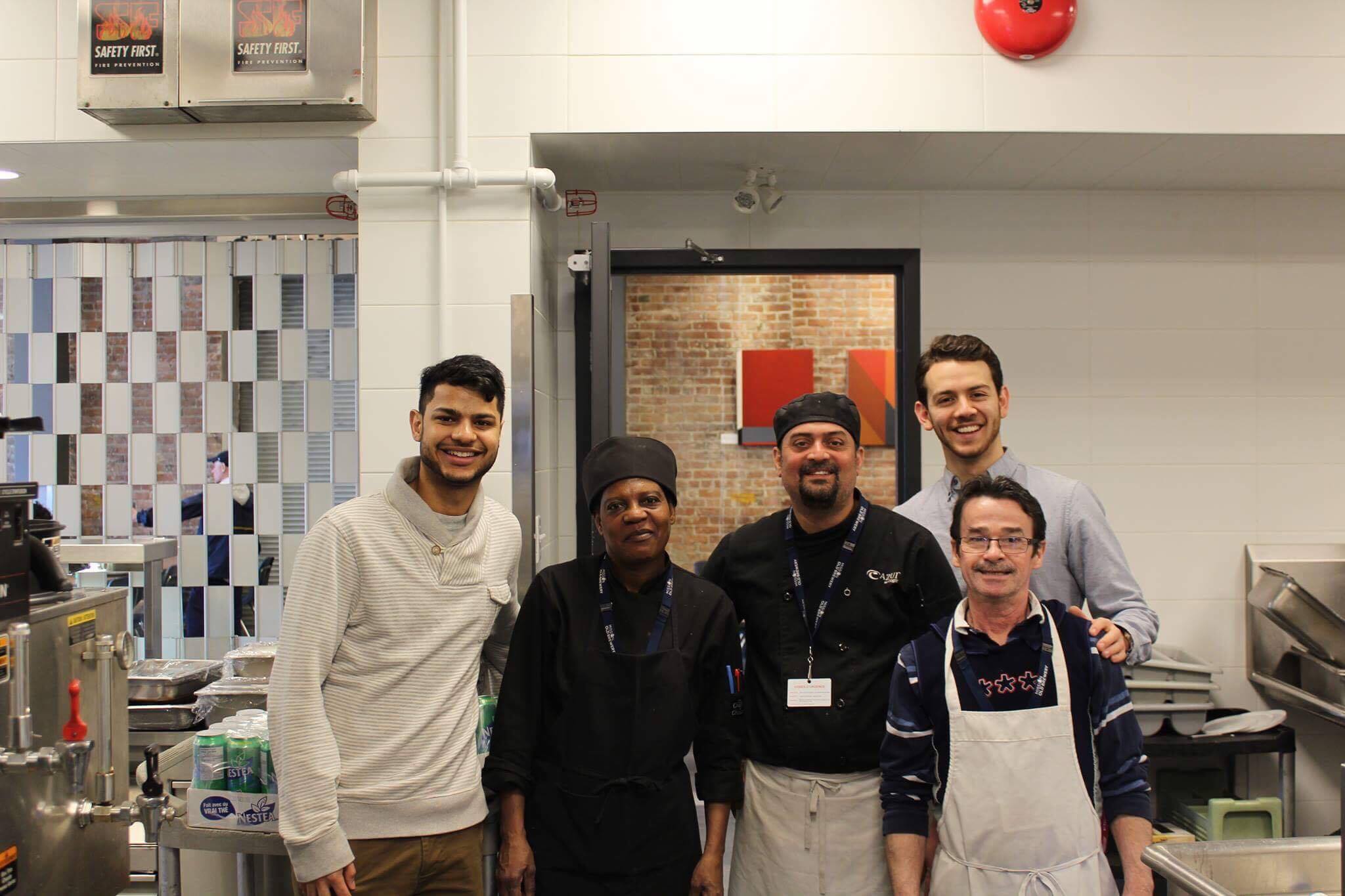One in six children in Canada are food insecure, yet, per capita, Canadians waste 183 kilograms of food annually. The gap between those who have access to more food than they can eat and those who have limited access to any food at all is wide.
MealCare, an initiative led by students at McGill, hopes to address this at the local level by collecting surplus edible food from restaurants, grocery stores, and cafeterias and distributing it to local non-profits and homeless shelters. In doing so, the program can take a burden off of these organizations so that they can instead allocate resources to other services.
Milton Calderón, U2 Arts, and Sanchit Gupta, U2 Science, co-founded MealCare in 2016. The program currently collects edible food waste from McGill’s Bishop Mountain Hall and Royal Victoria College cafeterias and brings it to the Old Brewery Mission, a local homeless shelter.
In April 2017, when MealCare first began operations, Calderón and Gupta donated 500 servings of food. Their first donation this semester was on Nov. 17.
“We’d walk to school every day, and we’d see people begging, and then at the cafeteria, they throw out food,” Gupta said. “We saw an imbalance, and we thought a project like MealCare could bridge these two problems and find a solution.”
McGill DriveSafe, a student initiative that offers to drive students home for free on Thursday, Friday, and Saturday nights, is integral to MealCare’s success in distributing food.
“We had a decent amount of interest among our volunteers in donating an hour of their time to MealCare to help them get the food to different places,” DriveSafe President Sophie Forest said.
According to McGill Executive Chef Oliver de Volpi, who also runs food services and sustainability operations, McGill cafeterias are conscious about food waste and strive to reduce it by repurposing food. When McGill has large amounts of food leftover—about three to four times a year—it donates the surplus to local shelters. MealCare negotiated in 2017 to collect food from McGill once per week on average.
“When there are four pieces of fish left, that’s where MealCare comes in,” De Volpi said. “Those are four perfectly good pieces of fish, but it makes no sense for us to try to repurpose them—it’s not really enough to make something with—and you can’t put four portions back the next day.”
Enactus, a student entrepreneurship club that helps community development projects become self-sustainable and independent, has helped MealCare grow beyond just Montreal. In September of this year, MealCare opened chapters in Ottawa and Dalhousie.
The Ottawa chapter has partnered with a local catering company and since the beginning of November has donated more than 100 pounds of food. The Dalhousie chapter is located near farmland, so members work with food producers–the source of 10 per cent of national food waste due to practices like throwing away misshapen produce.
Calderón and Gupta are also in contact with students at the University of British Columbia and the University of Toronto, among others. They hope to further expand both the scope of their program and their locations.
“The goal is to become a not-for-profit,” Calderón said. “Then, when we’re ready, to scale to more and more chapters, with a general blueprint of how we want things to go.”
After fine-tuning their current program, Calderón and Gupta hope to establish a membership program and add a few full-time positions.
"Although we're happy with what we've done and the progress we've made, what's to come is probably the most exciting thing," Calderón said.








